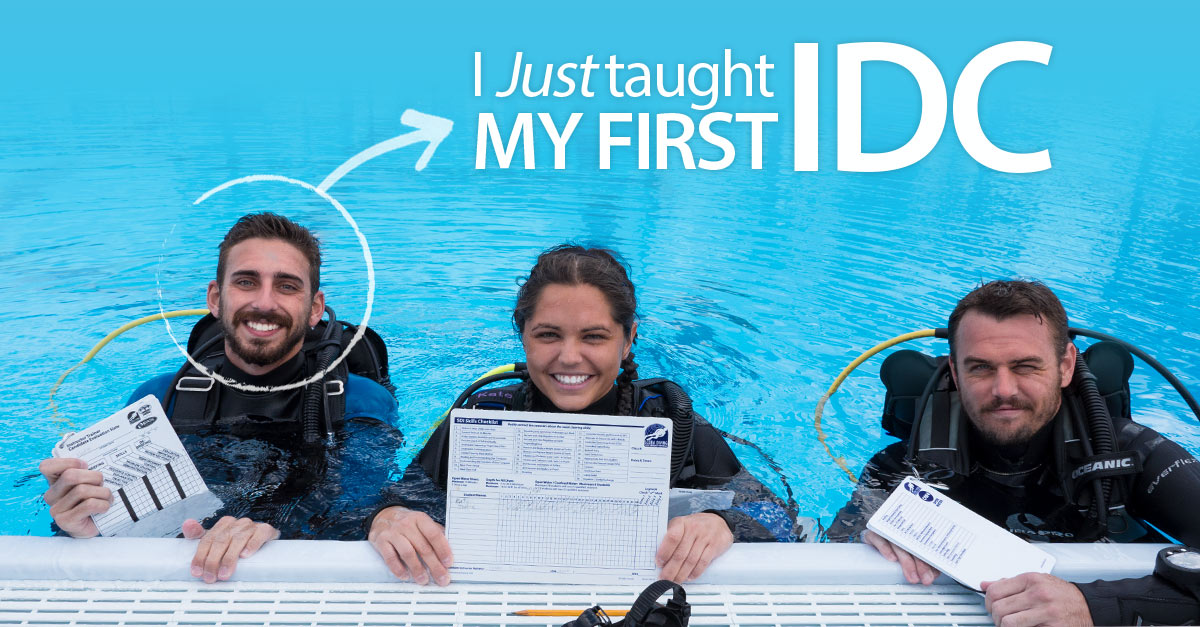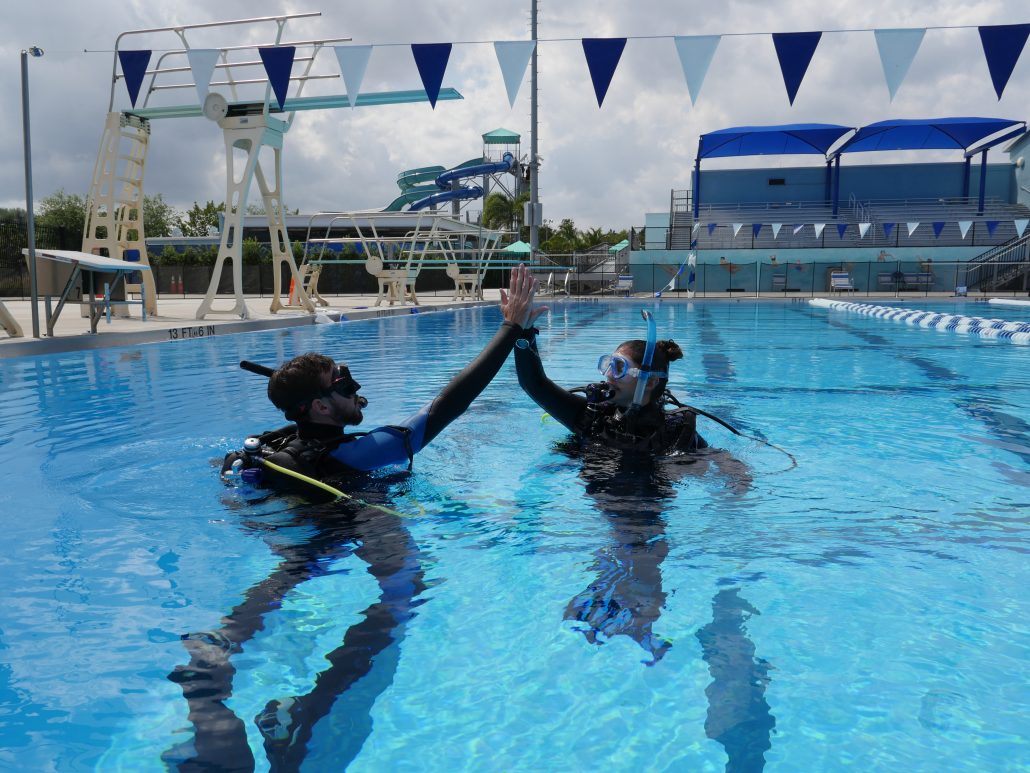I Just Taught My First IDC: Lessons from My First IDC
Every SDI instructor has seen the advertisements to participate in the Instructor Trainer Workshop and dreams of one day achieving Instructor Trainer (IT) status. Graduating from an ITI Instructor Trainer Workshop and emerging as a newly certified IT Staff Instructor or Instructor Trainer is an indescribable experience, but what comes next? Teaching your first Instructor Development Course (IDC), of course!
Although staffing at least one complete SDI IDC is a graduation requirement for the ratings and eight days of intensive training have been accomplished, your first IDC is going to be an adventure of its own. This experience will be the culmination of all your previous training and will present many unique and unexpected challenges. As every instructor knows, IDCs can do a great job of providing a new candidate with all of the skills, advice, and tools they need to instruct SDI diver courses, but nothing is quite like the real thing. Think back to the fist open water course you ever taught; it probably didn’t go exactly as expected, but helped set a lot of the groundwork needed for acknowledging the realities of teaching in the field and working to create an excellent learning experience for your future students. Your first experience running an IDC will be much the same.
After teaching my first IDC, I had a great amount to reflect on and use to create an even better program moving forward. I won’t be able to communicate every single hurdle, mistake, or lesson learned, but I can share my top three key points for those about to teach their first program. Keep the following in mind throughout the course to maximize your success!
Evaluation Delivery Diversity
During the ITW program, a great amount of time is spent on establishing and refining evaluation techniques. The goal here is to produce consistent performance in the individuals exiting the program, allowing instructors across the globe to be held to the same standards. While you may have perfected the art of numerical grading, there is a certain amount of tact that must be exhibited when presenting the evaluations to your candidates, especially during the early stages of the program. You will want to keep your grading standards consistent; the required performance to earn a certain grade shouldn’t vary with the content or order of the presentation. The way you present this evaluation, however, can be adapted to the situation. Sometimes listing off each grade that the candidate earned on each particular presentation point can be overly intimidating and do more harm than good to the candidate’s learning process and confidence. Especially during the early and particularly challenging presentations, it may be better to approach the situation in a more conversational style, still addressing the strong and weak points of the presentation, but without the additional pressure of passing or failing each point. Keep in mind that it is your obligation to the candidate to set them up for success; this may mean avoiding jumping straight into the rubric that you have learned to love so dearly.
Flexibility
As you plan and approach your first IDC, you are going to have a ton of preconceptions about all aspects of the course. You spent numerous hours of planning to make sure this is going to be the perfect program taken by the perfect candidates in the perfect setting; it’s all perfect. Reality usually doesn’t agree with these perfect plans and tries to throw a wrench into the mix. Hurdles you may face can include changes in dates, plans, and locations, differences in performance expectations, underestimation of time for lectures, presentations, or evaluations, candidates’ ability, willingness, and attitude towards learning, candidates’ responses to negative feedback and/or failing presentations, and many, many more. When dealing with such a new and involved experience, it is paramount that you remain flexible and stay positive for the program to run smoothly and to maximize the success of both yourself and the candidates. Although every aspect may not line up as expected, it is your duty to work through the difficulties and create candidates that can function as competent instructors. Remember that candidates will look up to you and emulate your professional behavior, so provide them with the best example possible!
Exceed Minimum Standards
A wise technical IT once said “The worst time you perform a skill in practice is the best you can expect it to be in an emergency.” While the emergency bit may not apply here 100%, the moral rings true for any level of training. Instructor candidates will need ample opportunity to develop an effective routine that allows them to deliver a passing presentation every time. When things go awry and nerves kick in, your candidates will always fall back on what is familiar.
SDI’s standards and procedures are written as the minimum standards necessary for a course to be completed; this doesn’t mean they should be the only course requirements. The great thing about instructor discretion is that you can add requirements to your courses to create a well-rounded learning experience for your candidates. Requiring more than the minimum number of two classroom, confined water, and open water presentations will give your candidates more opportunity for success in the course. The additional time spent remediating and developing candidates’ knowledge and abilities will do wonders for developing a reliable routine. Apply this mentality to any aspect of the course and you will consistently provide your candidates with a worthwhile IDC experience.
Share Your Experience
Every IT Staff/IT’s first experience is going to be different, but the lessons learned through experience will always be the most valuable. Pair this with the experience of others who have already walked the same path and you will certainly be heading in the right direction. Strive to develop a relationship with other ITs in an effort to create a network of individuals that can consistently share information and help each other grow as professionals. Please use the comments section below to share your first IDC experience, whether it is from the perspective of the Instructor Candidate or IT running the program!













Leave a Reply
Want to join the discussion?Feel free to contribute!